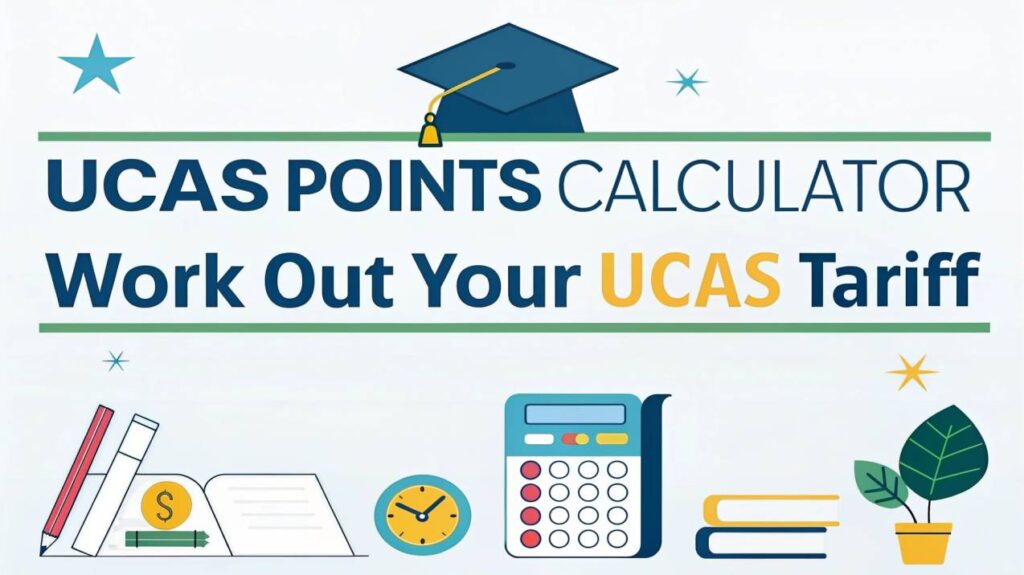If you’re applying to university in the UK, you’ve probably come across the term UCAS points. They’re a crucial part of the application process, used by many universities to decide whether you qualify for a course. But figuring out how many UCAS points your qualifications are worth can feel confusing. That’s where a UCAS Points Calculator comes in — it helps you instantly work out your total tariff points so you know exactly where you stand.

In this guide, we’ll explain what UCAS points are, how they’re calculated, and why they matter for your university applications. Plus, we’ll show you how to use our free UCAS Points Calculator tool to save time and avoid mistakes.
What Are UCAS Points?
Let’s start with the basics. UCAS points (officially known as the UCAS Tariff) are a system used to assign a numerical value to all the different post-16 qualifications in the UK. Think of it as a universal currency for university entry.
Whether you’re studying A-levels, BTECs, Scottish Highers, or the International Baccalaureate (IB), they can all be converted into a single number. This helps universities set standard entry requirements for their courses. Instead of listing every possible grade combination from every qualification, they can simply ask for a total number of UCAS tariff points.
For example:
- An A grade at A-level is worth 48 points.
- A D in a BTEC* is worth 56 points.
- An IB Higher Level 7 is worth 56 points.
By adding up your total UCAS points, you can see if you meet the entry requirements for your chosen course.
👉 This system helps universities compare students who studied different qualifications, like A-levels, BTECs, or the International Baccalaureate.
UCAS Points Calculator
Calculating UCAS points manually can be tricky — especially if you’re mixing qualifications like A-levels, BTECs, and IB. That’s why we built an easy-to-use UCAS Points Calculator.
UCAS Tariff Points Calculator
Calculate your total UCAS points from your qualifications to see what university courses you could apply for.
Add Your Qualifications
Your Qualifications
No qualifications added yet
Your UCAS Points Total
What Your Points Mean
University Entry
Add qualifications to see what courses you could apply for.
Top Universities
Top universities typically require 136-152 points for most courses.
About UCAS Points
The UCAS Tariff is the system for allocating points to qualifications used for entry to higher education.
Universities and colleges use the UCAS Tariff to make comparisons between applicants with different qualifications.
Not all qualifications attract UCAS points, and not all universities use the tariff – some set their own entry requirements.

